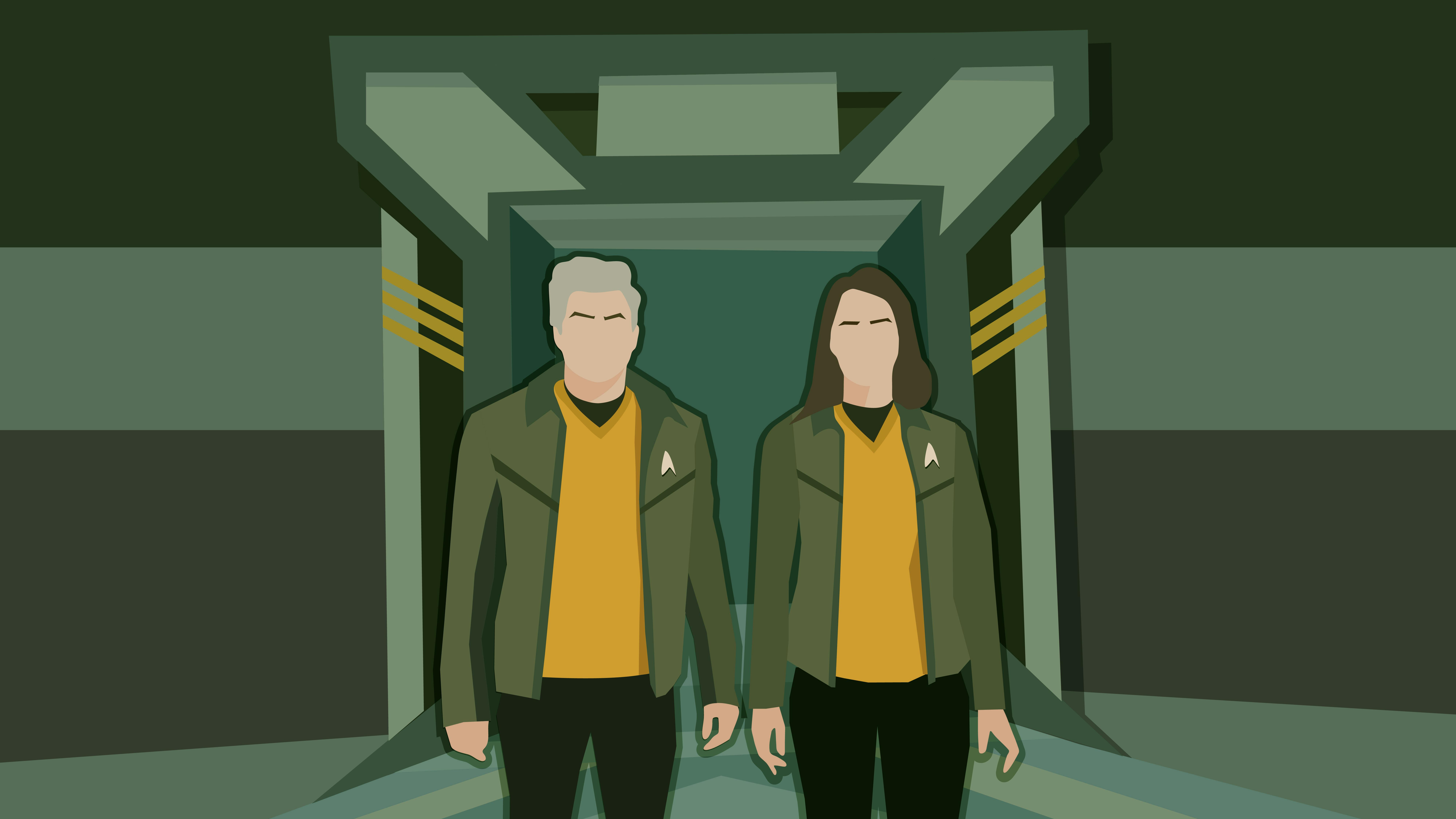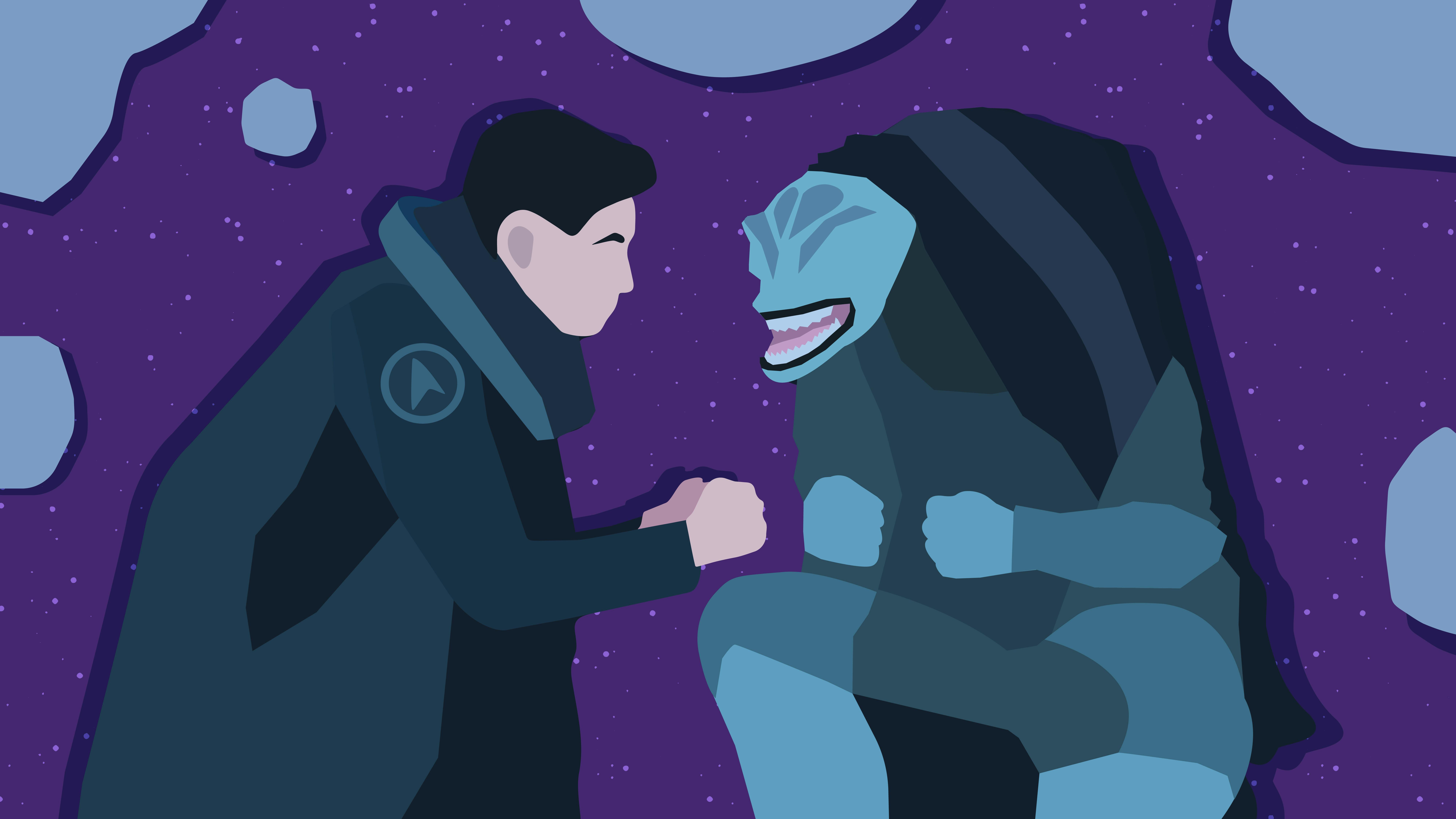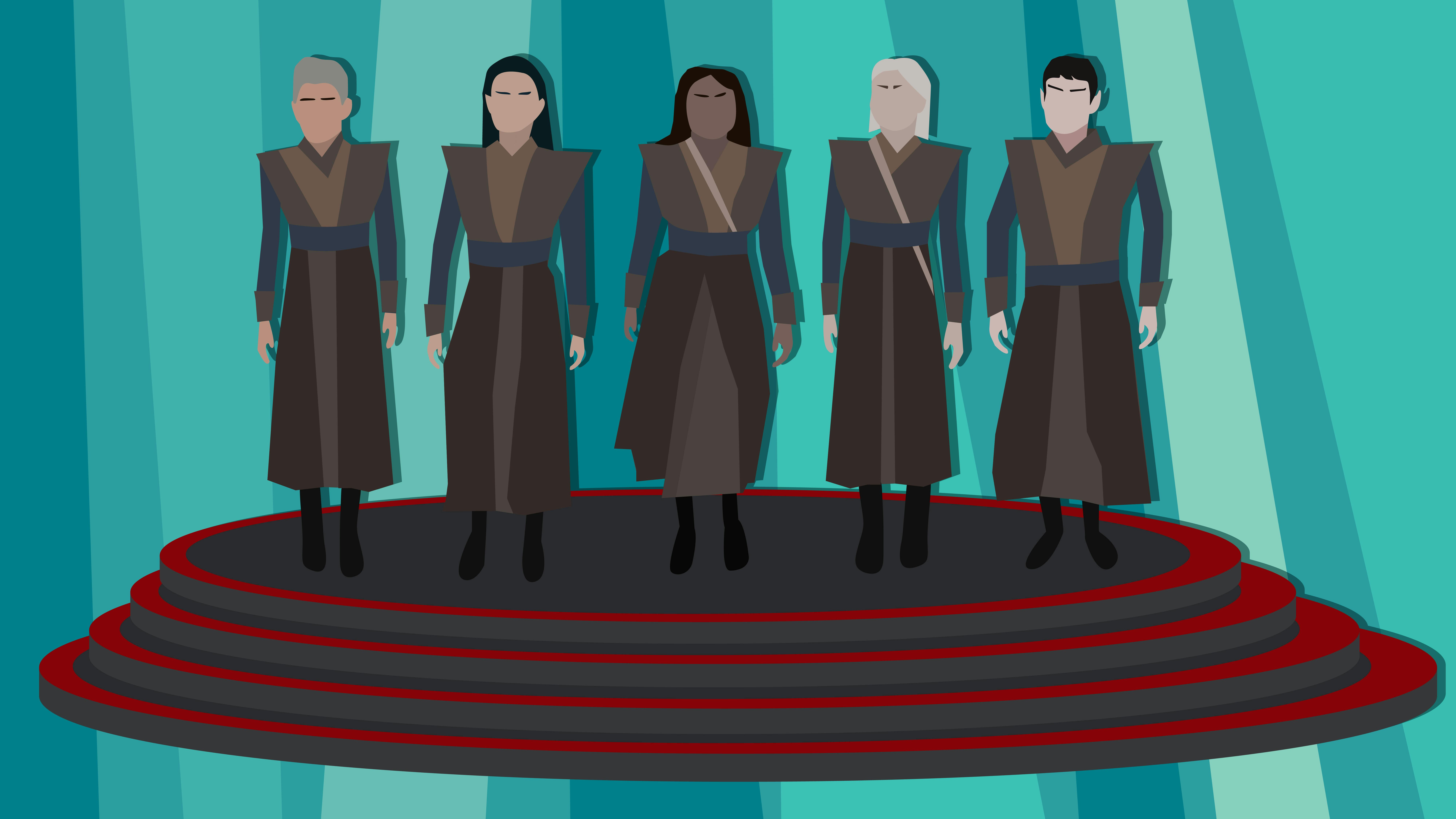Published Jan 24, 2024
'That Which Survives' Thrives at 55
The Original Series episode evolved in all sorts of ways before airing in 1969.

StarTrek.com
Every fan of has compiled a list of their favorite third-season episodes, and "" is on ours.
We think it needs to be there because it has a lot going for it — a "beat the clock" story that finds the Enterprise racing uncontrolled across the cosmos, a landing party stranded on a strange world, and a beautiful but deadly alien woman that’s able to make herself disappear in a thin vertical line.
Since today is the 55th anniversary of the original broadcast of this episode, we thought we’d explore its origins, the development of a few of its characters, and one of its set pieces. But please, do not be afraid as you read this article. We are here for you, StarTrek.com reader.
Story Origin
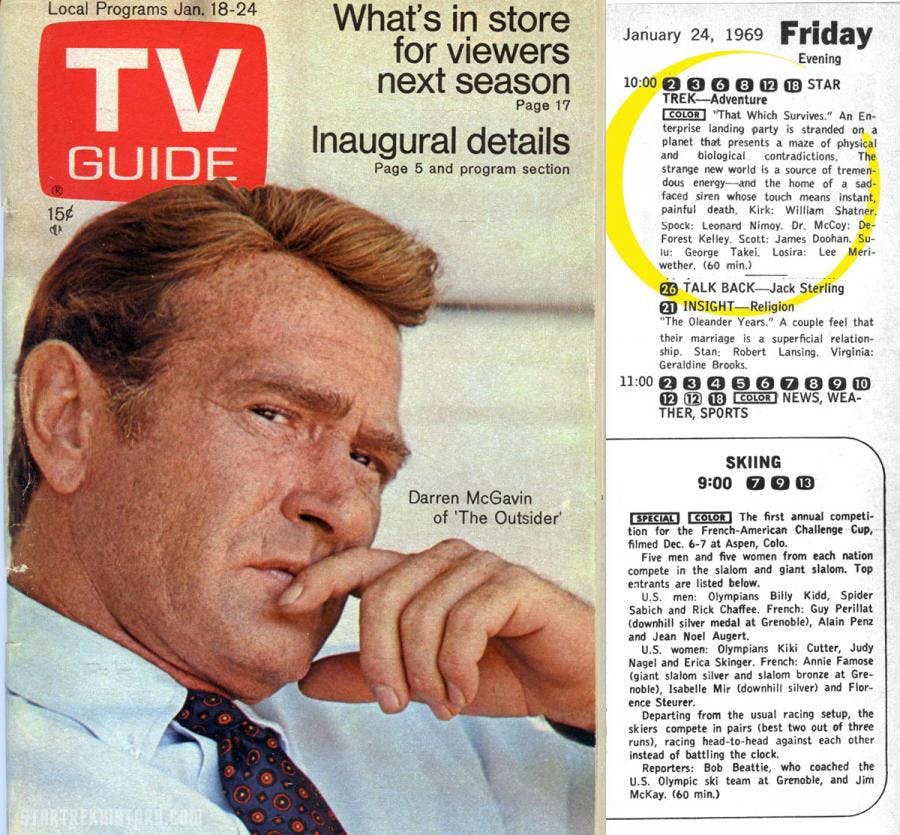
January 1969 issue of TV Guide
TV Guide
The story for "That Which Survives" was provided by Dorothy (D.C.) Fontana via her March 8, 1968 outline entitled "Survival." Even though Fontana eventually requested that a pseudonym be used for her on-screen writing credit (specifically, she used Michael Richards, because reportedly, she was unhappy with the rewrites as the outline progressed to shooting script), many of her ideas survived to the finished episode. Major differences between her outline and what ended up on the screen include:
- The landing party that investigated the outpost (and planetoid in the outline) originally consisted of Kirk, McCoy, Chekov, and Dawson. Chekov’s part eventually was given to Sulu and Dawson became D’Amato (a change made right before filming began).
- Sulu stayed on board the Enterprise to help with the mystery of how the ship was suddenly transported across space.
- Speaking of the Enterprise's mysterious transportation, the outline provides an explanation as to why the ship was reassembled in an outphase condition (referred to as an incorrect molecular structure in the outline). Simply, the outpost had trouble transporting something as large as the Enterprise and it made an error.
- The jeopardy caused by the ship’s uncontrolled acceleration — via the sabotage to the emergency bypass control — was not present in the outline. In fact, the Enterprise's trip back to the outpost was fairly routine – and mundane.
- The alien that eventually became Losira was a talon-ed energy image/being in the outline. This being could absorb energy from phaser beams and heat, and it used its talons to rip apart Dawson.
- McCoy was captured by the talon-ed energy entity in the outline and replaced by a metalized version. The real McCoy was held prisoner in the computer cave.
- At the conclusion of the outline, Kirk and Chekov located the real McCoy and escaped from the talon-ed energy being, which had been generated by the outpost's computer when it got distracted by the arrival of the Enterprise. Later, on the ship, Kirk informed Starfleet that the planetoid should be destroyed or declared off-limits, and then the Enterprise dropped warning buoys around it.
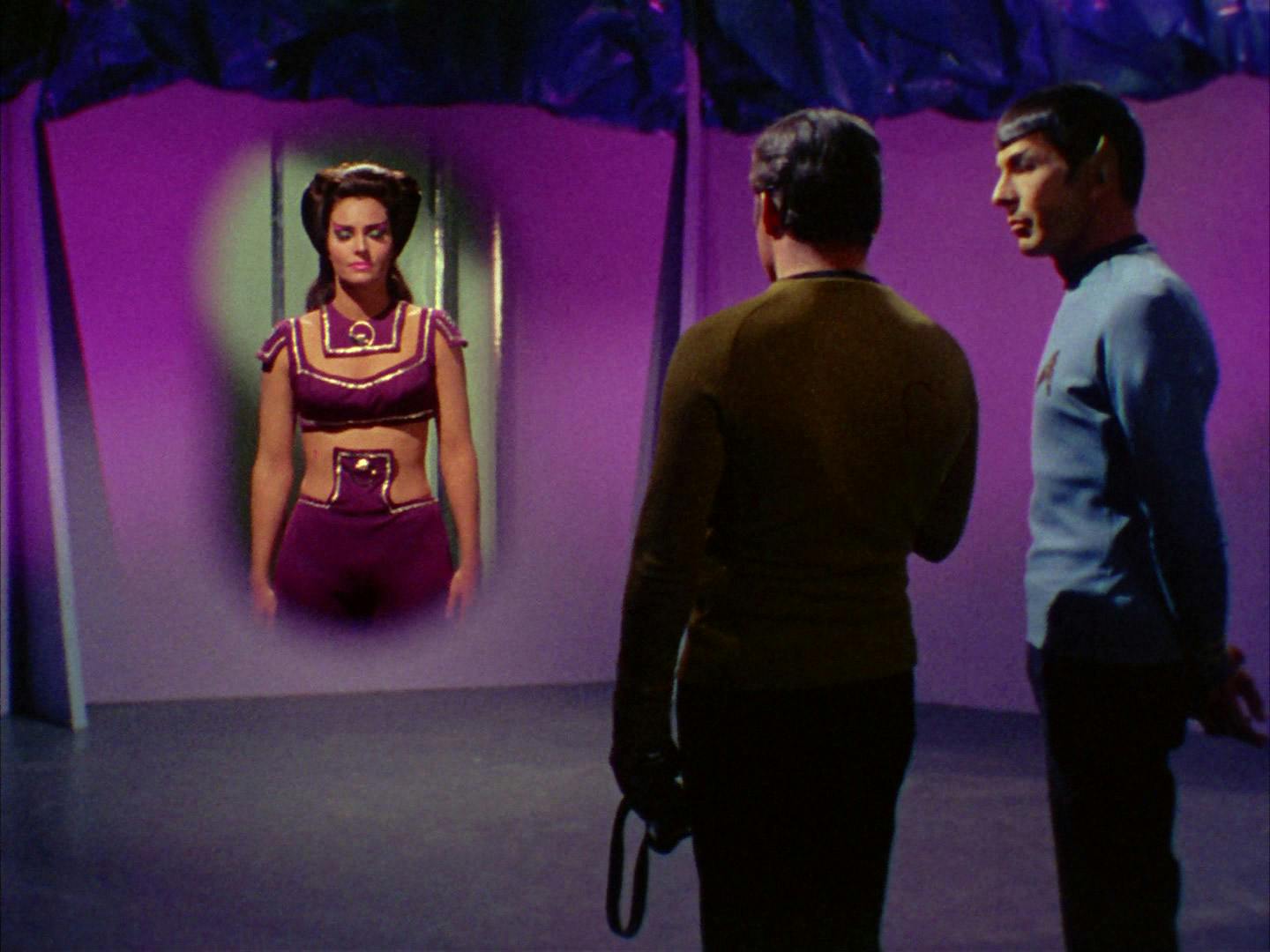
"That Which Survives"
StarTrek.com
Character and Set Piece Development
As the story for "That Which Survives" evolved from its initial outline to its shooting draft (which was the September 20, 1968 revised final draft, teleplay by John Meredyth Lucas and story by D. C. Fontana), several of its guest characters also evolved, as well as one of its set pieces.
For example, as mentioned before, Lt. Dawson in the original outline became Lt. D’Amato in the episode (and played by Arthur Batanides). Here are a few other interesting changes.
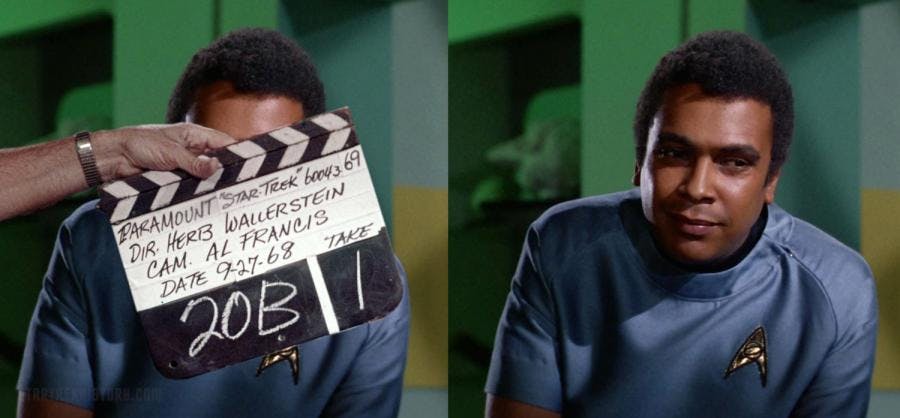
StarTrek.com
Dr. M'Benga (played by Booker Bradshaw), seen above, made his first TOS appearance in the second-season episode, “.”
Interestingly, he was added to "That Which Survives" fairly late in the process; in fact, only a few days before filming commenced. In the first draft of the script (story by D.C. Fontana and teleplay by John Meredyth Lucas, September 9, 1968) the doctor was a man named M’Boya. In the intermediate drafts, the character was eliminated completely and his dialogue given to Nurse Christine Chapel (Majel Barrett-Roddenberry).
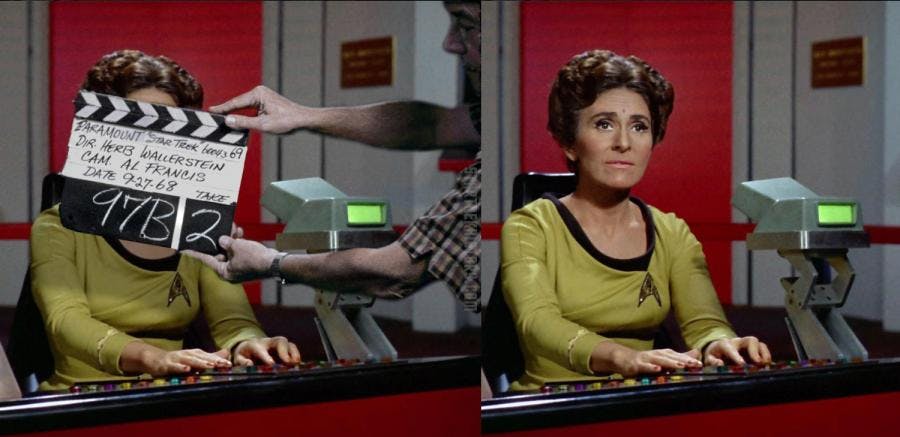
StarTrek.com
Lt. Rahda, played by Naomi Pollack, was developed essentially by combining two male lieutenants that appeared in the first draft.
Incidentally, Pollack’s first appearance in TOS was as a Native American in the third-season episode, "."
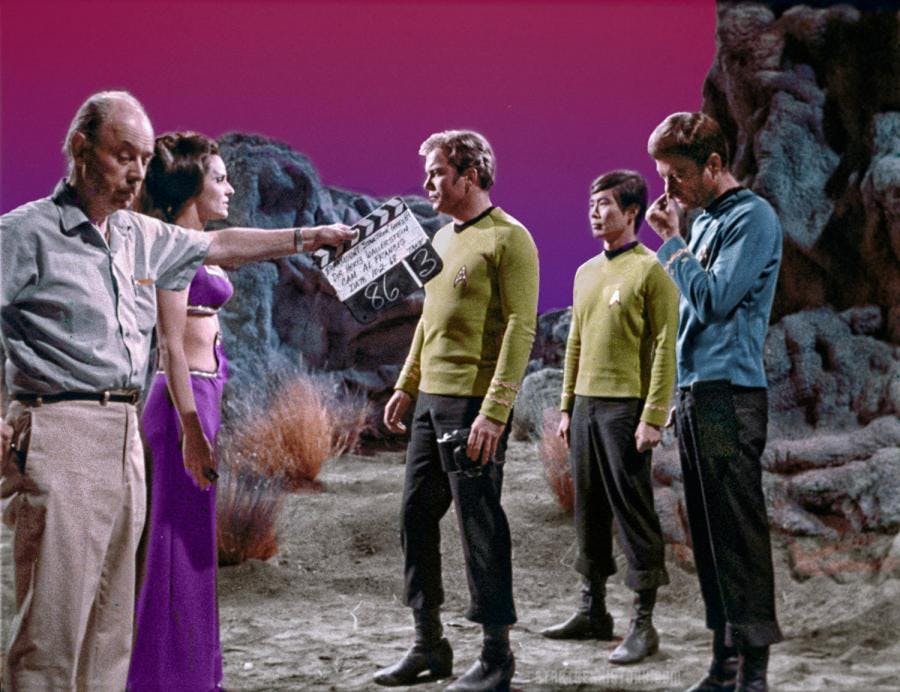
StarTrek.com
The talon-ed energy image/being in the story outline was replaced with Osira the Thalassan in the first draft.
In subsequent versions, including the shooting draft, the image/being became Losira the Kalandan (portrayed by Lee Meriwether).
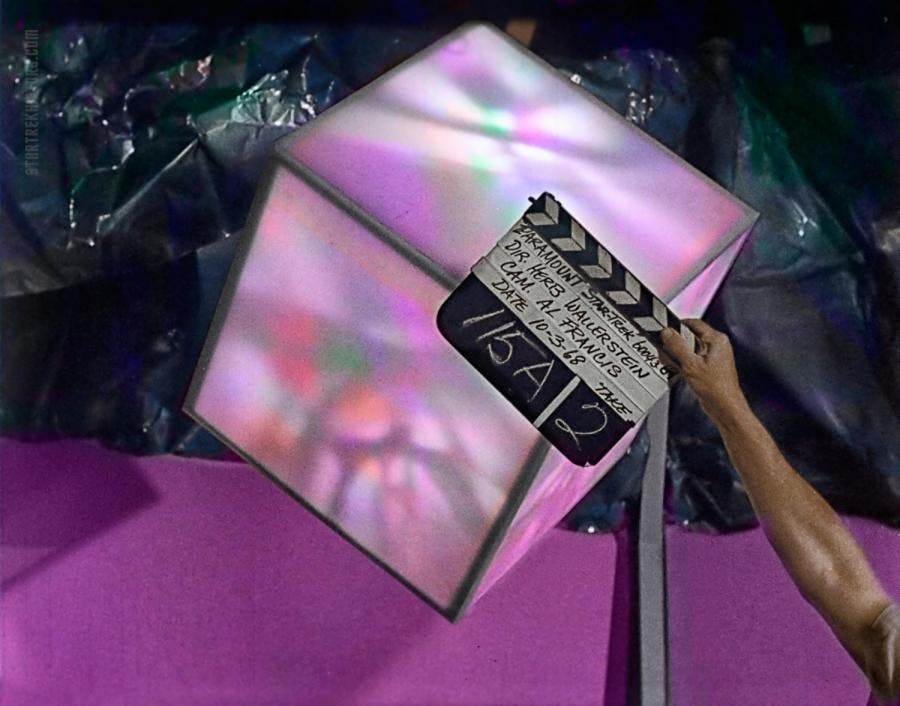
StarTrek.com
In the finished episode, the cube-shaped computer on the outpost was suspended from the ceiling of the "brain room." However, in the shooting script, it was supposed to sit in the middle of it.
As seen in the episode, the computer had translucent panels on which pulsating/rotating lights were projected. The final effect was reminiscent of one generated by a rotating lamp shade.
And with that, we come to the end of this piece. Remember: although this article is transitory, the beauty of this episode is not. Until next time.

